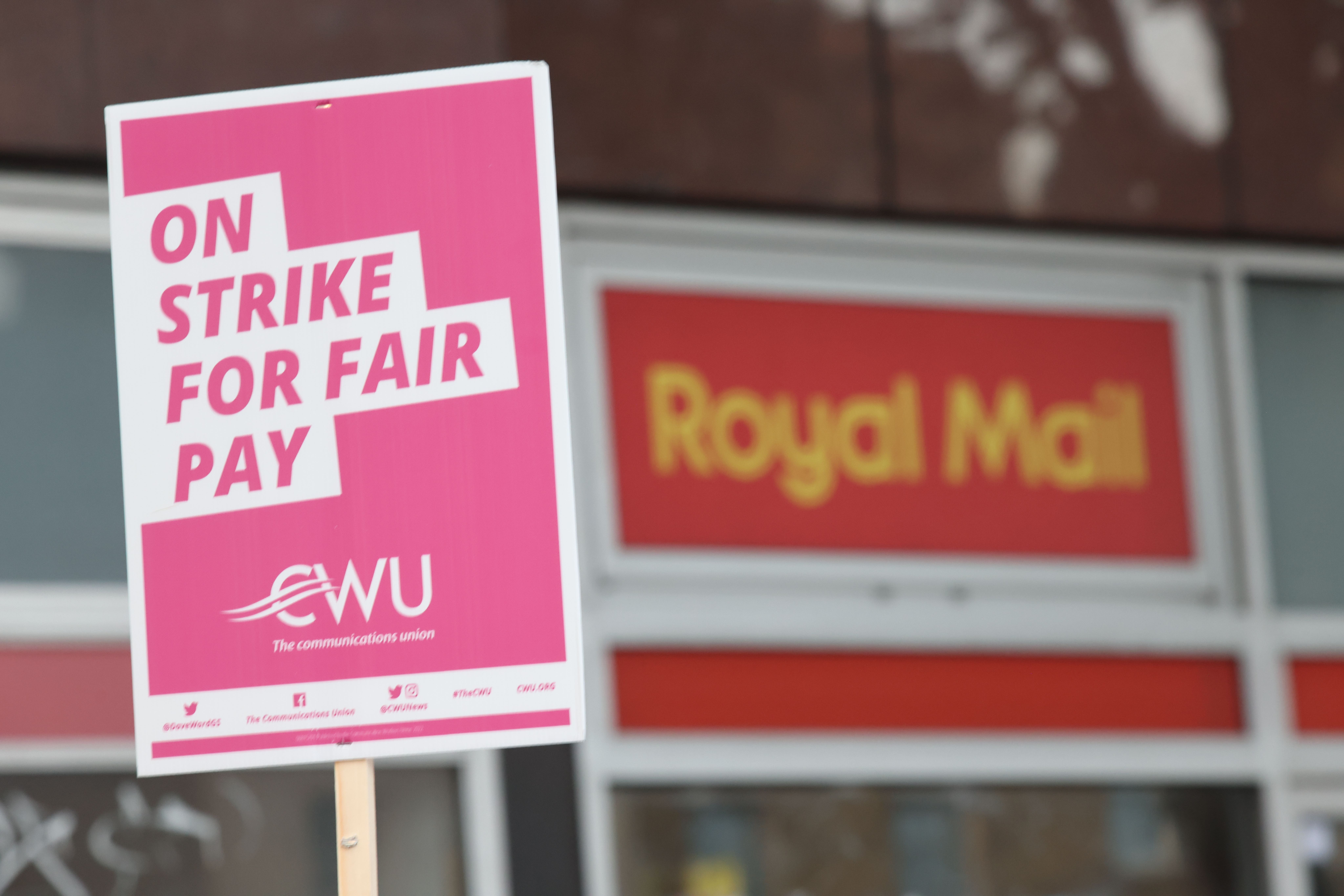Moonpig grapples with the fallout from this Tory winter of discontent. There will be many more like it
Britain’s current industrial strife will have a negative impact on the economy, yet Rishi Sunak and co seem determined to put appeasing their backbenchers above the national interest, argues James Moore


Why buy a card if you can’t bank on it getting to the recipient?
This is the problem (beyond its control) facing Moonpig, the online greeting card and gift company, which has just slashed its full-year revenue forecast from £350m to £320m.
The group repeatedly used the word “resilient” in its half-year results, which is usually code for “it’s really, really tough out there”. And it is. First-half profits took a tumble while uncertainty clouds the company’s future prospects.
It made much of its rich trove of data, its loyal customers, and the success of the 79 million or so reminders it sends out around occasions when they might like to buy stuff.
It’s also doing some sensible things, notably “deleveraging”, which is one of those horrid City slang words executives love to use. As you’re probably aware, it means “cutting debt”, which is exactly what you should do when winter is coming.
The City, however, wasn’t buying it. The shares recorded a double-figure percentage fall as investors rushed for the exit.
The problem was as obvious to them as it is to the company’s customers. Delivery is out of Moonpig’s hands. The Royal Mail – which puts the company’s cards through the doors of their recipients – is wracked by the strikes that are casting a pall over multiple businesses, services and sectors.
The railways, various parts of the NHS, firefighters and schools are all in the same boat. There will doubtless be many other situations like the one for Moonpig, either directly or indirectly caught by these tremors.
Their results will read similarly with acres of space devoted to “resilient” business models, talk about (ugh) deleveraging balance sheets in company statements – then gut punches at the end of when it comes to the subject of the outlook.
Faced with rising expenses from multiple directions – staff, energy, input costs, you name it – companies will act as businesses usually do in these situations. They will focus their attention on costs, they will put off hiring, they will concentrate on preserving their margins and they will put off, or shelve, their investment plans.
When it comes to the wider economy, the latter might be the most damaging of all. Britain badly needs investment and it’s not getting it.
So “yah boo sucks” to those terrible union bosses? Well, no. Not this time. The public seems to appreciate that these strikes, whether in the public or the private sector, aren’t about the caricature of hard-left union bosses trying to tear down capitalism.
The movement’s leaders are simply representing their members who have been walking out because their wages are being eaten away by inflation.
Moonpig’s products can largely be put in the basket labelled “affordable luxury”. Some of those striking will struggle to afford food and plenty more will be struggling with rent, let alone personalised greeting cards for their loved ones which may not even arrive.
With just about everyone facing the same problem, there’s a certain amount of goodwill. The public can see that the people on picket lines are often not those one would normally consider as militant. For goodness sake, this involves the Royal College of Nursing.
Some may ask how people who’ve been sleeping in cars because they can’t afford to heat their homes can afford to strike. The obvious response is simply that desperate times call for desperate measures.
The government has two choices here. It could intervene with the aim of bringing an end to the disruption. This would come at a price to the public purse, at least when it comes to disputes in the public sector.
On the other hand, the cost could be mitigated, if not erased, by the improvement in Britain’s economic fortunes which would result from Rishi Sunak steering the labour force into calmer waters.
Choice two is to stoke the fires. Falsely blaming the disruption on “militants”, making ridiculous public statements like Nadhim Zarhawi’s claims about Vladimir Putin watching strike ballots, planting smears with friendly media outlets and pressing ahead with yet more repressive anti-union legislation.
The inevitable result of this will be a longer, deeper and far more costly recession with more downbeat trading statements like Moonpig’s, reduced investment, more redundancies, more pain across the board, not to mention a deep well of bitterness among workers whose goodwill is frequently called upon to keep businesses and services running.
It seems that the government is minded to go for the latter because the national interest matters far less to it than keeping the awkward squad on its back benches quiet.
This Tory winter of discontent will inevitably raise questions about the government’s reputation for economic competence as it feeds through into the economic numbers. Except that ship may already have sailed.
Join our commenting forum
Join thought-provoking conversations, follow other Independent readers and see their replies
Comments